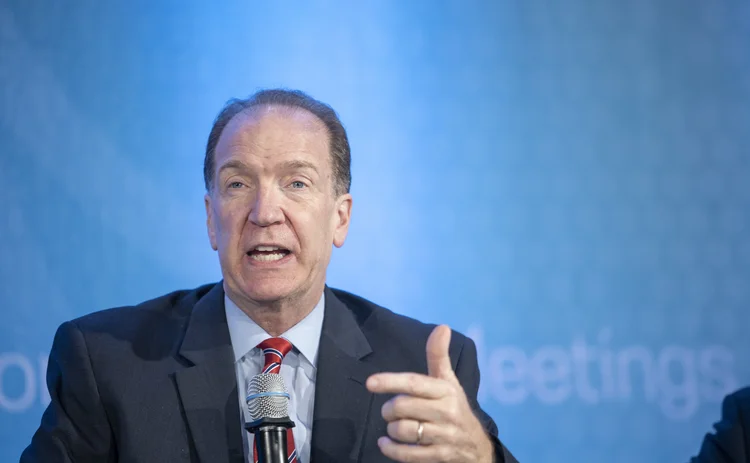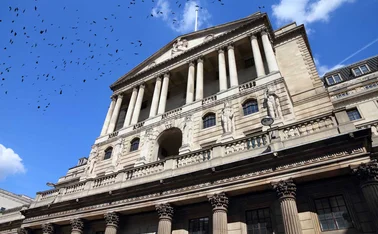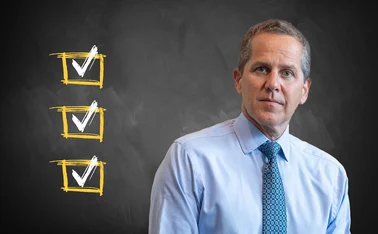
IMF staff warn ‘exceptional’ demand for funds likely to continue
Executive directors agree to extend debt relief and higher borrowing limits

Staff at the International Monetary Fund warn the next few months could see “significant” further demand for emergency funding facilities.
Executive directors agreed to extend raised limits on borrowing for the poorest countries for a further six months, an action recommended by IMF staff. Directors also agreed to continue debt service relief for 28 countries.
“Exceptional demand for fund financing is expected to persist well into 2021,” staff say in a report published on October 5. “For many [emerging and developing countries], prospects continue to remain precarious despite a slight improvement in the global growth outlook.”
The IMF will now continue offering higher limits on two emergency facilities, the rapid financing instrument and the rapid credit facility. Countries can currently draw an annual amount of 100% of their IMF quota, and borrow a cumulative amount of 150% of their quota. The raised limits had been due to expire on October 5.
“There was broad agreement that the extension was justified to provide the fund with flexibility to support urgent balance of payments needs, in the context of persistent pandemic‑related economic disruptions,” a summary of the executive board meeting says.
The IMF will also offer grants to its poorest members to cover the costs of debt service for a further six months. This second batch of debt relief is expected to be worth around $227 million.
The fund is hoping to offer $1.4 billion to its 28 poorest members to help them service their debts over a two-year period. However, this is dependent on the IMF receiving sufficient donations from richer nations. So far, only around a third of the total amount has been pledged.
The broader push for debt relief remains contentious. The G20 created the Debt Service Suspension Initiative in April to help poorer countries fund measures to tackle the Covid-19 pandemic, but G20 leaders have since said some countries are not living up to the spirit of the deal. G20 finance ministers and central bank governors are next due to meet on October 14.
In remarks this week, World Bank chief David Malpass said not enough creditors were offering debt relief, leaving the amount on offer “too shallow”. He also warned that debt service was being deferred rather than reduced, and said private investors should not be allowed to “free ride” on debt relief offered by sovereigns.
“The risk is that it will take years or decades for the poorest countries to convince creditors to reduce their debt burdens enough to help restart growth and investment,” Malpass said on October 6.
Malpass said there needed to be full participation of creditors in the debt moratorium, “to buy time”. He called for “full transparency” on the terms of debt contracts, said better analysis of long-term debt sustainability was needed, and said the world must find ways to cut the stock of debt for the poorest countries.
“The development response [to the pandemic] will need to be extended and intensified, both in terms of the health emergency and the efforts to help countries find effective support systems and recovery plans,” Malpass said.
Only users who have a paid subscription or are part of a corporate subscription are able to print or copy content.
To access these options, along with all other subscription benefits, please contact info@centralbanking.com or view our subscription options here: http://subscriptions.centralbanking.com/subscribe
You are currently unable to print this content. Please contact info@centralbanking.com to find out more.
You are currently unable to copy this content. Please contact info@centralbanking.com to find out more.
Copyright Infopro Digital Limited. All rights reserved.
As outlined in our terms and conditions, https://www.infopro-digital.com/terms-and-conditions/subscriptions/ (point 2.4), printing is limited to a single copy.
If you would like to purchase additional rights please email info@centralbanking.com
Copyright Infopro Digital Limited. All rights reserved.
You may share this content using our article tools. As outlined in our terms and conditions, https://www.infopro-digital.com/terms-and-conditions/subscriptions/ (clause 2.4), an Authorised User may only make one copy of the materials for their own personal use. You must also comply with the restrictions in clause 2.5.
If you would like to purchase additional rights please email info@centralbanking.com







